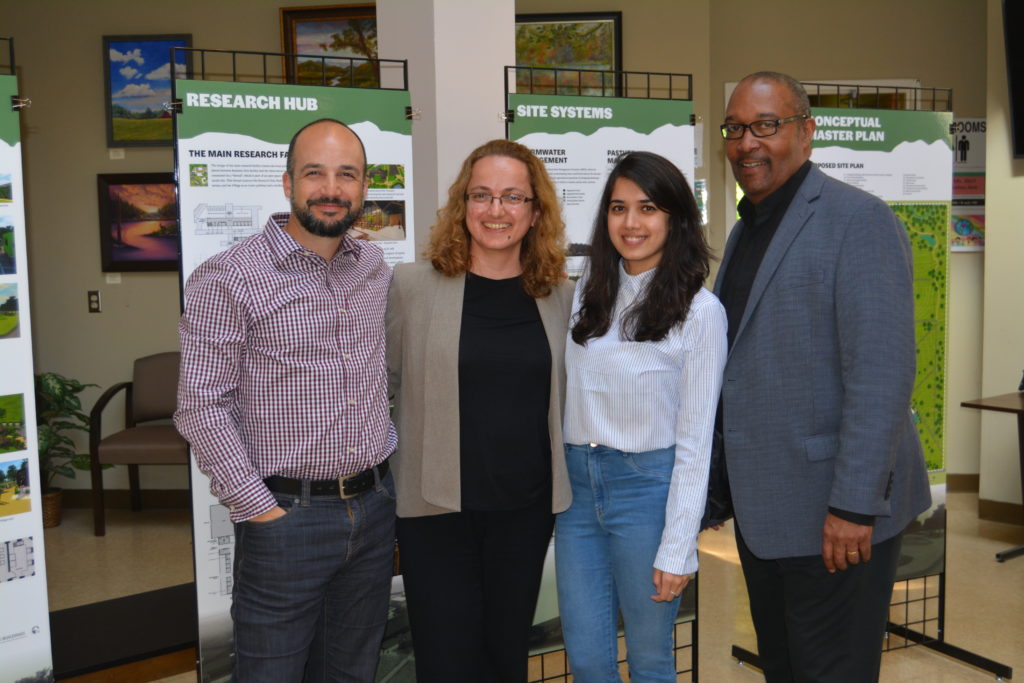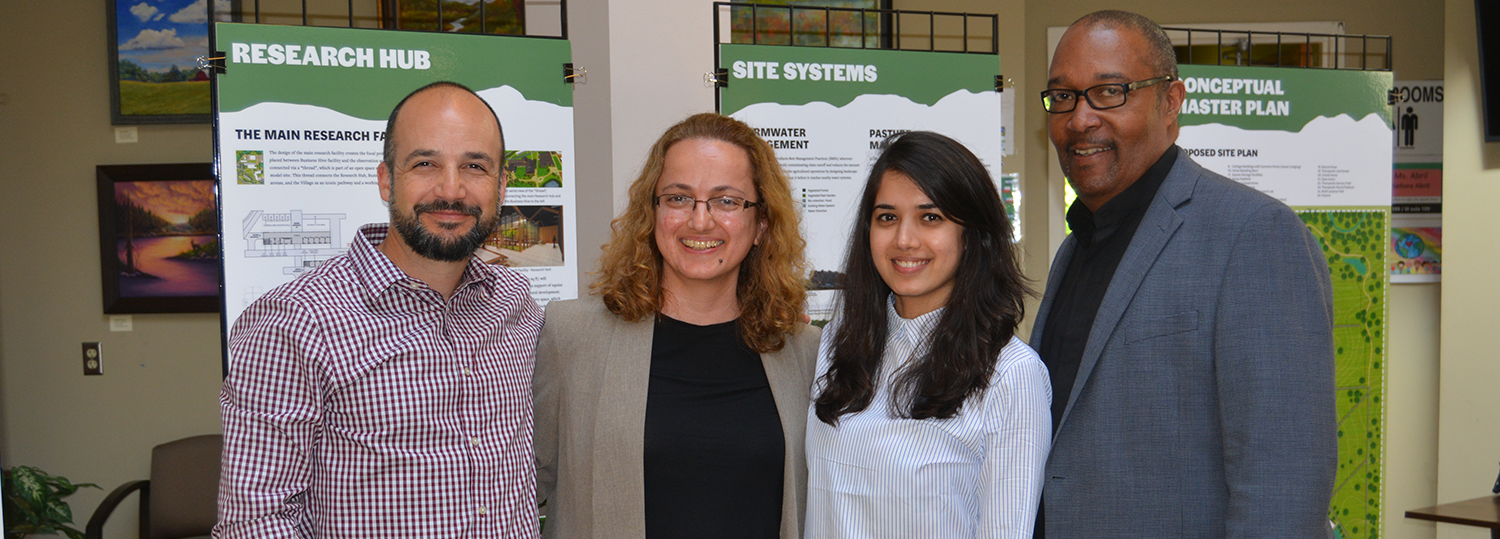
A multidisciplinary team from NC State University has completed a report analyzing economic development options for Rutherford and Polk counties. In partnership with Isothermal Community College and with support of the Appalachian Regional Commission, NC State researchers Dr. Kwesi Brookins, Dr. Duarte Morais and Dr. Celen Pasalar examined how the region might build off of its rich horse culture to strengthen economic opportunity for its citizens. In this report, they discuss their methods and findings and outline an approach that multiple communities might take as they try to create new development possibilities. The next steps are in the hands of the community.
The Southeast Equine Research and Education Partnership (SEREP) arose from a partnership between North Carolina State University and Isothermal Community College (ICC) that was made possible by a grant from the Appalachian Regional Commission. Led by an interdisciplinary team of researchers from NC State, as well as stakeholders from across the Isothermal region of Western North Carolina, particularly in the counties of Polk and Rutherford, the goal of SEREP was to conduct a feasibility study to determine how an equine research, training and education facility could be established to build upon the historically strong equestrian economy in the area.
According to Dr. Kwesi Brookins, one of the principal investigators (PI) from Applied Social and Community Psychology at NC State, “Polk County has had a vibrant equestrian community for over 150 years. This history and equestrian ecosystem was one of the reasons the Tryon International Equestrian Center decided to establish itself just outside the city of Tryon and become one of the premier venues for national and international horse competitions in the country, including hosting of the 2018 World Equestrian Games.” As a result, government and industry leaders in both Rutherford and Polk counties sought ways to leverage this national and international attention towards growing the equestrian economy and bringing much-needed jobs and industry back to the area. In addition, many in the community wanted to attract the equestrian and animal science expertise of NC State that could support regional horse communities.
Using a community-engaged approach, the team was able to establish relationships with key stakeholders in the public and private sectors across the region. They also conducted analyses of the equestrian economy and documented case studies of university-connected equine research centers around the country. While similar university-connected centers exist across North Carolina, the goal was to create opportunities that would meet the needs of the local communities by building on its specific strengths in the areas of agriculture, tourism, and small business development.
“The challenges faced by rural communities are very complex – they have to embrace ever-changing socio-economic trends, catalyze local civic engagement and entrepreneurship, and produce equitable and sustainable prosperity. That is the perspective from which we are approaching SEREP,” said Dr. Duarte Morais, another co-PI from Parks, Recreation and Tourism.
According to Dr. Celen Pasalar, the third PI from Landscape Architecture, the interdisciplinary research team had an even more ambitious goal: “Using a systematic approach merged with design thinking processes, SEREP sought to fuel sustainable development in the region with an eye toward becoming an engagement research model for how a university can work together with local communities, civic organizations, governments, and private institutions on economic and community development.”
On April 23, 2019, the NC State team delivered the findings of its study to the Isothermal Community. The model they proposed, The Southeast Equine Community and Research Center, would accommodate the equine-related education and research needs of local horse owners and farms, small businesses, and private and non-profit industry. The team provided conceptual and business models, as well as physical design scenarios that outline a community-oriented, economically viable, and environmentally sustainable center for research and education in the area. The center would increase local capacity and provide synergy to ICC’s ongoing initiatives by providing training and other educational opportunities aimed at building the equine workforce. And finally, in the areas of equine-related research, the center would provide an opportunity to leverage the strengths of NC State University in the agricultural, animal, natural, social, and veterinary sciences.
The team’s research determined that one of the more promising areas of equine-related research, and one for which there are few other centers in the United States, is in equine-assisted human activities (e.g. riding, learning, psychotherapy). In addition, the agricultural and technology needs of the local areas as well as the state of North Carolina would be well-served by research in the production of premium horse hay and other forages, manure and pasture management, and the development of a variety of agribusiness opportunities. Finally, a center would build on the increased equestrian-related visitors to the region and provide spaces for incubating small businesses and educating local communities and tourists on all aspects of the historical and present day relationship between horses and humans.
For more information, visit http://go.ncsu.edu/serep/ or email Dr. Brookins at craig_brookins@ncsu.edu. To view all three SEREP reports, visit https://serep.wordpress.ncsu.edu/updates/.
Praise for SEREP
“As Vice Provost for Outreach and Engagement at NC State, it has been a privilege to see the collaboration between Isothermal Community College and NC State on this initiative, which focused on equine and animal research and human therapy services. The challenge of determining how to productively and responsibly manage growth and change is one communities across the state are facing, and making progress involves bringing together community voices, economic and workforce agencies, and anchor institutions like Isothermal. NC State is pleased to be involved in this effort and looks forward to our continued work together.”
–Leslie Boney, Director, Institute for Emerging Issues, Vice Provost, Outreach and Engagement at NC State University
“As Chair of the board of NC State’s Institute for Emerging Issues, I have always looked with favor upon the expansion of research and higher education in our state. Also, as a resident of Western North Carolina, I have advocated for a greater presence of these initiatives in Western North Carolina. The plan brought forth by Isothermal Community College and NC State University for a collaborative research center with the potential for other universities and private research companies to participate is a good one and, when brought to fruition, will strengthen our region, our state, and provide greater opportunity for our people.”
-Jack Cecil, Chair of the Institute of Emerging Issues at NC State University and President of Biltmore Farms
“North Carolina’s universities and community colleges are our greatest assets. When they collaborate, the result is always a success. This effort between Isothermal Community College and NC State will result in new opportunities for advancement and prosperity in the state’s growing equestrian industry.”
-Anthony M. Copeland, N. C. Commerce Secretary
“It is a wonderful thing when one of North Carolina’s great universities and one of its great community colleges work together with a community to plan for the future and opportunities for advancement and prosperity. That is what Isothermal Community College and NC State University have done, together with the work for local citizens, in developing this study. It not only lays a foundation for the area, but it also helps to strengthen a growing equestrian industry in our state and through programs for human therapy, improve the quality of life for some of our most vulnerable citizens.”
-Pryor Gibson, Director of Hometown Strong
“I appreciate the work of Isothermal Community College and its efforts to provide the best of educational opportunities for our students. This study looks to the future and looks for ways to expand opportunities, while respecting our traditions and pastoral lifestyle.”
-Tommy Melton, Chair of the Polk County Commission
“As Commissioner of Agriculture, I am pleased when communities envision our state’s number one industry, agriculture, as part of their future. The equestrian sector is a strong component of that economy. As we look to move agriculture forward, ag research will undoubtedly be part of our future success.”
-Steve Troxler, NC Commissioner of Agriculture
References
Pasalar, C., Morais, D., & Brookins, C. C. (2019). Envisioning the future: The southeast equine community and research center – A final report.. Raleigh, NC: North Carolina State University. doi:10.5281/zenodo.3261814

